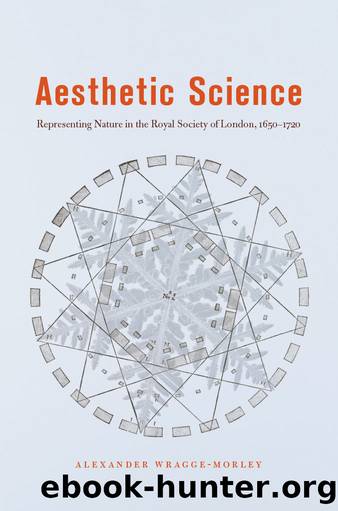Aesthetic Science by Wragge-Morley Alexander

Author:Wragge-Morley, Alexander
Language: eng
Format: epub
Publisher: amazon
[Judgment] is a way of proceeding quite contrary to Metaphor and Allusion, wherein [ . . . ] lies that entertainment and pleasantry of Wit, which strikes so lively on the Fancy, and therefore so acceptable to all People; because its Beauty appears at first sight, and there is required no labour of thought, to examine what Truth or Reason there is in it.65
The operations of wit gave rhetoric its affective power. The imagination, according to Locke, took pleasure in the kinds of quick, easy, and pleasurable comparisons facilitated by metaphorical speech. And it was by these operations that the imagination formed images that were so vivid and powerful as to overpower the scruples of reason.66 Locke’s account of metaphor reproduced the most important elements of the descriptive ideal of enargeia. He suggested that words could be used to reproduce visual experience and that the resulting images possessed a vividness that was either caused by or led to their affective power. At the same time, however, he departed from the descriptions of enargeia to be found in rhetorical treatises, both by specifying the exact cognitive process on which it seemed to depend and by insisting that this process was inimical to the exercise of judgment and discovery of the truth.
Locke’s explanation for the power of metaphor helps us to grasp how important the provocation of affective states was to the descriptive strategies employed by Ray and his fellow naturalists. When they used comparisons to represent natural things, they took advantage of the mental operations that Locke saw as belonging to wit. That Ray considered this mental operation to be epistemologically useful is clear from his account of the power of pictorial representation—the one that he sent to Robinson in 1684. Ray’s interest in using pictures to effect the rapid and pleasurable formation of vivid ideas closely resembles Locke’s description of the “agreeable Visions” and pleasurable feelings arising from metaphor. A difficulty arises, however, when we try to square this interest in the power of wit with the fact that both men complained that the pleasures of metaphor were fundamentally deceptive. Once again, however, we find that disavowals of rhetoric concealed a deep interest in harnessing those pleasures for more worthy purposes. Peter Walmsley has shown that Locke’s dismissal of wit only barely concealed his belief that it was one of the fundamental features of cognition, characteristic of the nonrational functions of the faculties of imagination and memory. Indeed, the Essay devotes many pages to the discussion of cases in which experiences of pleasure and pain seemed to have led the imagination to form associations between ideas that could never have resulted from the exercise of judgment.67
It was this nonrational principle, governed by pleasure, to which the naturalists appealed when they used rhetorical devices such as the comparison. In the next chapter, examining the style of these comparisons, we will bring to light the cognitive and affective functions that were attributed to them in the interconnected discourses of neurology and rhetoric.
Download
This site does not store any files on its server. We only index and link to content provided by other sites. Please contact the content providers to delete copyright contents if any and email us, we'll remove relevant links or contents immediately.
Hit Refresh by Satya Nadella(9125)
When Breath Becomes Air by Paul Kalanithi(8426)
The Girl Without a Voice by Casey Watson(7885)
A Court of Wings and Ruin by Sarah J. Maas(7819)
Do No Harm Stories of Life, Death and Brain Surgery by Henry Marsh(6934)
Shoe Dog by Phil Knight(5257)
The Rules Do Not Apply by Ariel Levy(4957)
A Higher Loyalty: Truth, Lies, and Leadership by James Comey(4954)
Hunger by Roxane Gay(4921)
Tuesdays with Morrie by Mitch Albom(4769)
Everything Happens for a Reason by Kate Bowler(4733)
The Immortal Life of Henrietta Lacks by Rebecca Skloot(4576)
Millionaire: The Philanderer, Gambler, and Duelist Who Invented Modern Finance by Janet Gleeson(4465)
How to Change Your Mind by Michael Pollan(4355)
All Creatures Great and Small by James Herriot(4311)
The Money Culture by Michael Lewis(4198)
Man and His Symbols by Carl Gustav Jung(4128)
Elon Musk by Ashlee Vance(4121)
Tokyo Vice: An American Reporter on the Police Beat in Japan by Jake Adelstein(3981)
